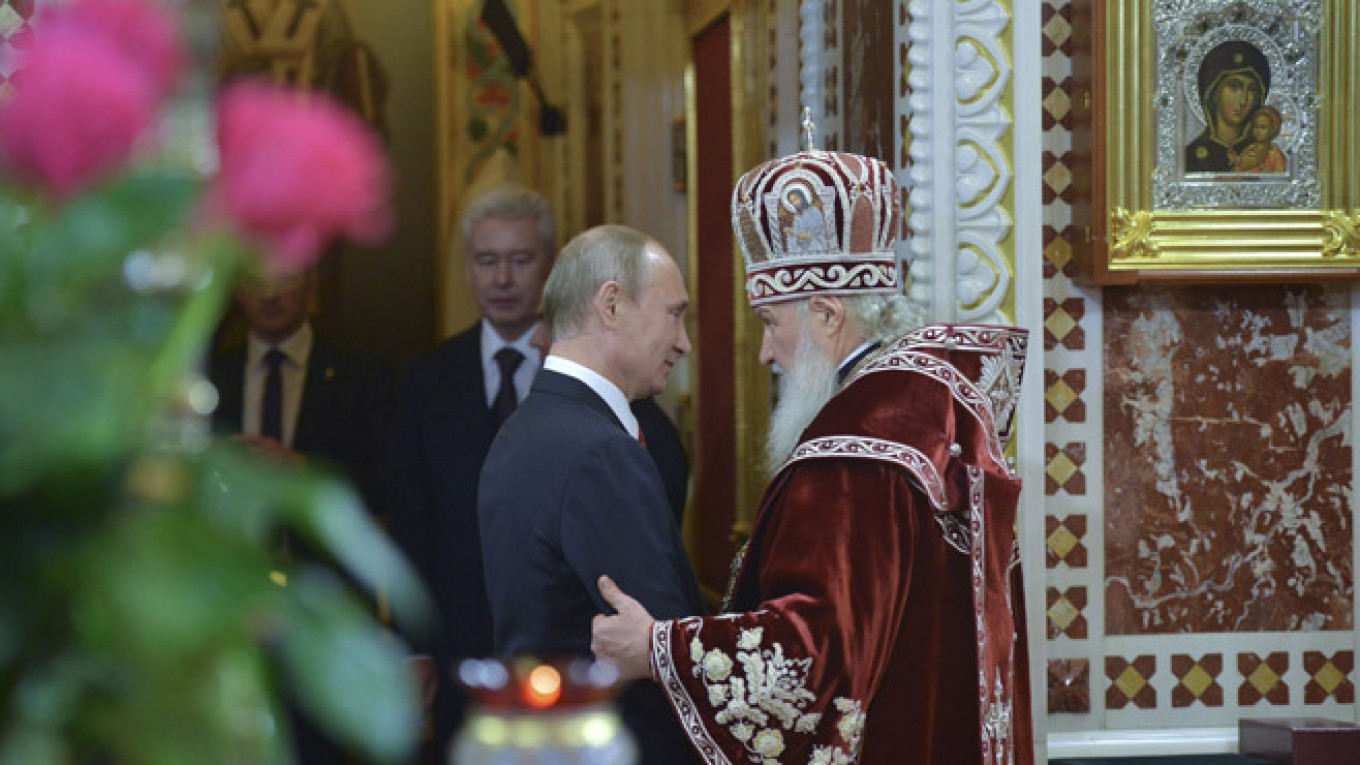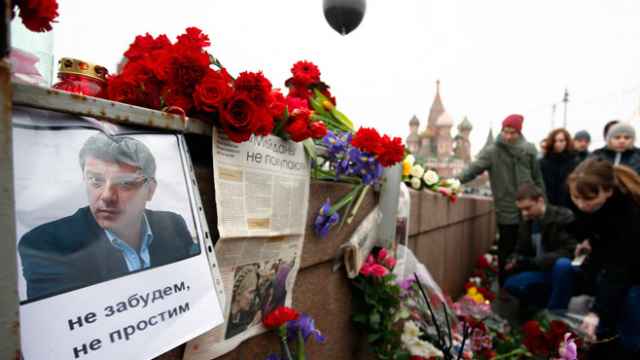The good news is, Russians still believe that 150-year-old Wagner operas and low-budget cinema can have sway over society. The bad news is, they believe it for all the wrong reasons.
In the wake of the recent scandal over the staging of Wagner's "Tannhäuser" in Novosibirsk, it is important to remember the more mundane explanation for why a crackdown on culture appears to be under way in Russia, and it's got little to do with religious fervor that is allegedly sweeping the country.
To recap: The Novosibirsk State Opera and Ballet Theater recently staged a new interpretation of "Tannhäuser," which features a modern-day film director who decides to make a movie about the so-called "lost years" of Jesus Christ. When the director enters the film into a competition, he provides a poster that features a crucifix between the open, naked legs of a woman.
Contextually speaking, it makes sense for the character to make that kind of poster (and in a perfect case of art not so much imitating as predicting life, the opera character faces outrage and banishment for the image). Most people who have actually bothered to see the Novosibirsk "Tannhäuser" were not offended.
Yet a carefully orchestrated disinformation campaign was used to whip up hysteria against people who worked on the production. When the opera director and the head of the theater itself were acquitted after being tried for breaking Russia's new law against offending religious feelings, the controversy didn't stop there.
Russia's Culture Ministry, plainly siding with offended — and, in many cases, simply misinformed and manipulated — believers against the court decision, demonstrably sacked the theater head.
What is going on? Metropolitan Tikhon, the local Russian Orthodox Church leader, made the original complaint against "Tannhäuser," but other forces may ultimately be at work here.
Deacon Andrei Kurayev, a well-known Russian Orthodox clergyman and blogger, made a point of seeing "Tannhäuser" and wrote that "there was nothing criminal, there was no evil intent, and there was no blasphemy."
Kurayev also argued that the campaign against the production was initiated by the local branch of NOD, aka the National Liberation Movement, founded by State Duma Deputy Yevgeny Fyodorov, who wants Russia to be cut off from SWIFT and further isolated from what he believes to be corrupting foreign influence. One of the NOD's central beliefs is that Russia's Constitution is too liberal and needs drastic updates. The NOD believes that Russia needs a return to legalized totalitarianism for its own good, and rewriting the Constitution is the ticket.
As Kurayev points out, the Russian Constitution cannot simply be rewritten. A national referendum would be needed. Kurayev believes that manufactured controversies such as the one surrounding "Tannhäuser" will ultimately be used to convince Russians to vote their own right to free expression away.
"The puzzle is complete," Kurayev wrote. "Believers are asked to be offended, offended loudly and often, so that a new, ideologically totalitarian regime can then be created ostensibly for their own protection."
Kurayev doesn't ascribe the plan directly to Russian President Vladimir Putin, but he points out that there could be factions within the government that dream of precisely this kind of scenario.
It is an interesting theory and it makes me think that the outcry against Andrei Zvyagintsev's Oscar-nominated "Leviathan" was also likewise orchestrated, or at least manipulated, by forces angling for a shift from a so-called hybrid regime to full-blown authoritarianism.
While the fable-like structure of ''Leviathan'' can find resonance in any corner of the world, it also addressed the cynicism of high-ranking state officials and powerful clergymen in Russia.
As a result, a letter-writing campaign was initiated against the actor who played a corrupt priest in the film, and the Culture Ministry made a statement about investigating him as well. With "Tannhäuser," the stakes have merely been raised higher.
What's an artist to do in this situation? Not much, really. Art in Russia has always traveled between Scylla and Charybdis, between co-option by the government and dangerous disfavor. The possibility of a safe middle ground is an illusion. Virtually any kind of artist can be found to be "useful" for any number of nasty games.
Russia believes in the symbolic power of art — probably more so than any other nation, in my opinion — but this power can come at a tremendous price.
Natalia Antonova is an American playwright and journalist.
A Message from The Moscow Times:
Dear readers,
We are facing unprecedented challenges. Russia's Prosecutor General's Office has designated The Moscow Times as an "undesirable" organization, criminalizing our work and putting our staff at risk of prosecution. This follows our earlier unjust labeling as a "foreign agent."
These actions are direct attempts to silence independent journalism in Russia. The authorities claim our work "discredits the decisions of the Russian leadership." We see things differently: we strive to provide accurate, unbiased reporting on Russia.
We, the journalists of The Moscow Times, refuse to be silenced. But to continue our work, we need your help.
Your support, no matter how small, makes a world of difference. If you can, please support us monthly starting from just $2. It's quick to set up, and every contribution makes a significant impact.
By supporting The Moscow Times, you're defending open, independent journalism in the face of repression. Thank you for standing with us.
Remind me later.








